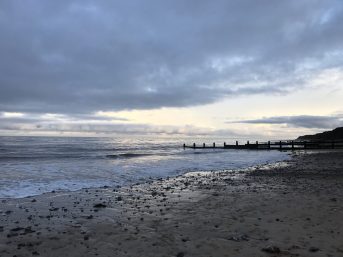As part of our Something Done in Small Moment series, Anna Aysea writes about a very poignant experience and her response to it.
As I turned left, into the long aisle with the detergent, I walked in on the heated brawl between mother and son. The boy could not have been more than five or six. Standing a few feet away from his mother, his little body was shaking with heaved sobs. Tiny fists clenched, and in between sobs he was yelling “No” to his mother at the top of his voice. She stood half turned away from him, without looking at the boy, she spoke to him in an undertone, without expression. Her words were like soft dripping poison, she was taunting and humiliating him. She told him that everything was his fault, that he should be ashamed of himself, that everyone in the store was now looking at him thinking he was a bad, foolish boy, that I was looking at him, thinking he was a stupid fool.
 The mother spoke in a foreign language and was clearly under the impression that I could not understand her words, not realizing I happened to speak that language.
The mother spoke in a foreign language and was clearly under the impression that I could not understand her words, not realizing I happened to speak that language.
It was a battle of wills. She told him she needed apples and if he wanted to make himself useful, instead of making a fool of himself, he should stop making such a fuss and go and get some apples. Fists clenched, still shaking with sobs, the boy stormed off through the aisles.
Witnessing the drama up close, I had been pretending to be immersed in the various detergent choices. My mind on the tormented child, I made my way to the produce section of the large supermarket. Still sobbing, the boy had found the fruit on the low display and started putting apples in a plastic bag.
“Hi there sweetheart, can I help you with something?”
Not looking up, continuing to shake with heaved sobs, there came a vigorous “No” shake with the head. I followed him as he walked to the self-service scales with the bag of apples. He tried to put the bag on the scales but the counter was way too high for him.
“Would you like me to help you weigh your apples sweetheart?” Again a vigorous “No” shake.
“You like to do it yourself, don’t you?” A vigorous “Yes” shake. Such determination.
“Shall I maybe lift you a little so you can reach the scales and weigh the apples yourself? Would that be okay?” A curt nod.
I lifted him, apples and all, and hold him high enough so he could reach the scales. Shaking and determined, he put the bag on the scales, found and pushed the image of apples and then the price sticker button. I carefully lowered him again.
“Well done, sweetheart! Yeah, I get you, I also like to do things by myself” A wan smile. The interaction seemed to to be calming him somewhat.
“Can you remember something for me, sweetie?” A nod.
“You are very brave, and a good boy. Never forget that. Always remember that, okay?” A nod.
I watch his tiny back as he walked away, returning to the battlefield. I felt powerless, wondering about the kind of adult he would become after the long war of childhood.
 Many years ago while attending a long retreat at Throssel Hole Buddhist Abbey in Northumberland, I had the opportunity to practice with the choir. My only previous experience was at school when I was chosen to be in a choir by the music teacher. At that time I was rather reluctant and thought I may not be too good at singing. The experience of practising with my school friends was actually very enjoyable, we even won a competition at the City Hall in Newcastle. I will never forget the sense of being together and the mutual support and happiness I felt. In hindsight I believe this must have brought confidence to many of us, it certainly helped me.
Many years ago while attending a long retreat at Throssel Hole Buddhist Abbey in Northumberland, I had the opportunity to practice with the choir. My only previous experience was at school when I was chosen to be in a choir by the music teacher. At that time I was rather reluctant and thought I may not be too good at singing. The experience of practising with my school friends was actually very enjoyable, we even won a competition at the City Hall in Newcastle. I will never forget the sense of being together and the mutual support and happiness I felt. In hindsight I believe this must have brought confidence to many of us, it certainly helped me.
 I learned a lesson last evening. Having my eldest grandson on a visit, 18 years young, on the threshold of adulthood age, I really do not know him well; extremely taciturn, he does not readily convey his inner thoughts, although I do get the impression he is quite a “deep thinker”.
I learned a lesson last evening. Having my eldest grandson on a visit, 18 years young, on the threshold of adulthood age, I really do not know him well; extremely taciturn, he does not readily convey his inner thoughts, although I do get the impression he is quite a “deep thinker”.













